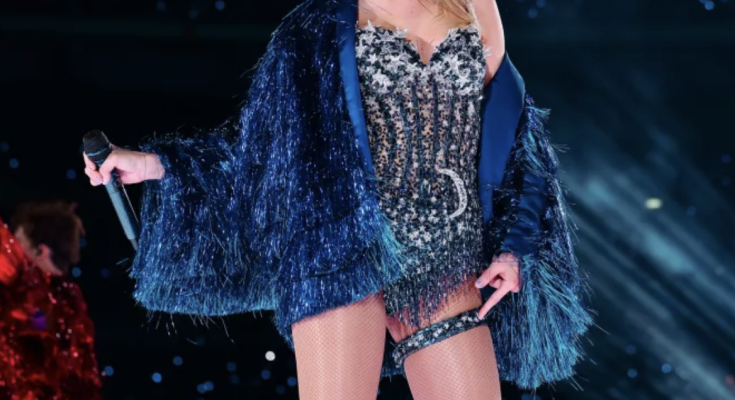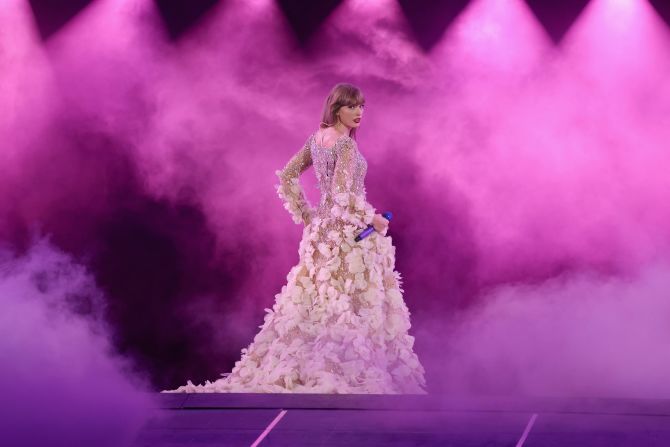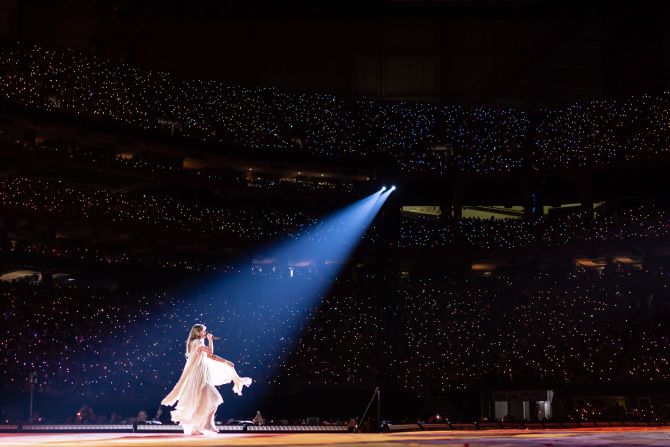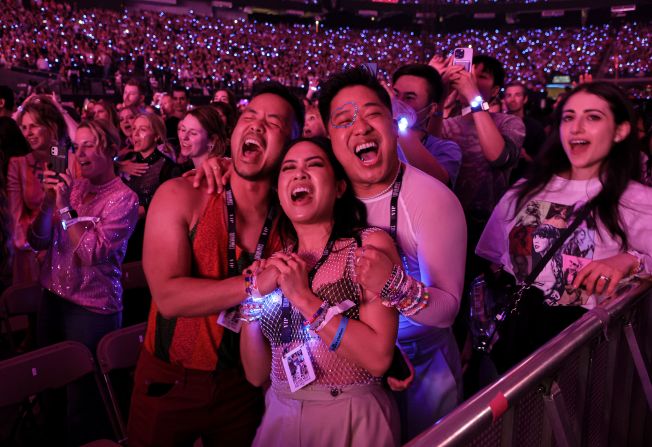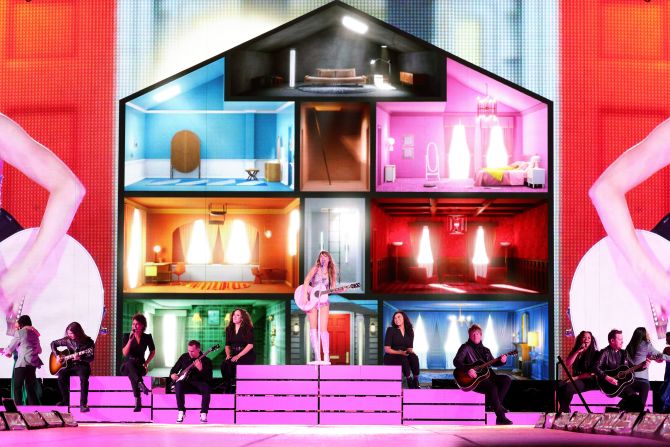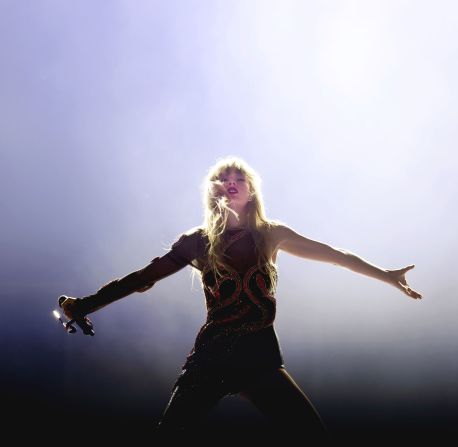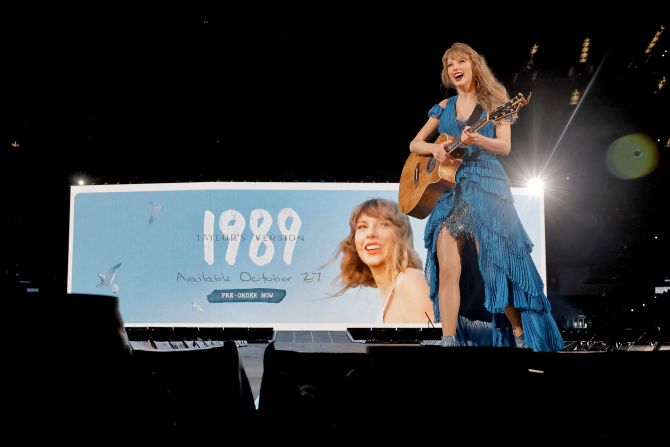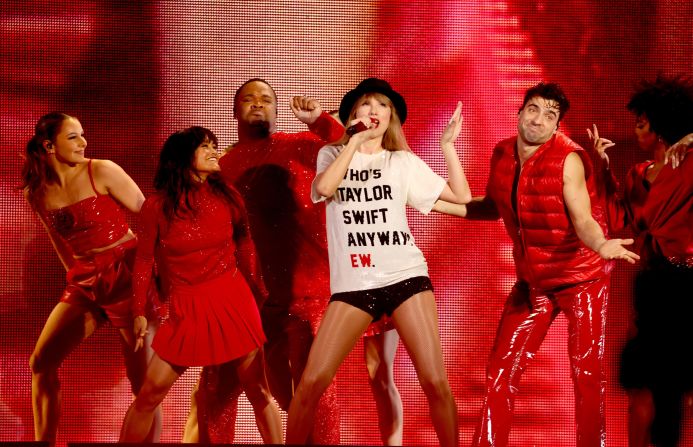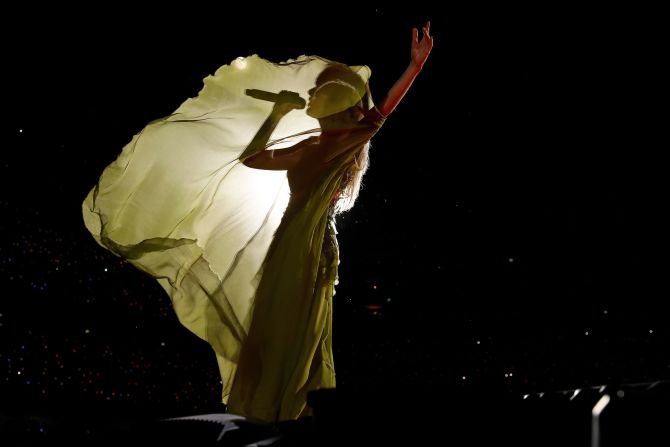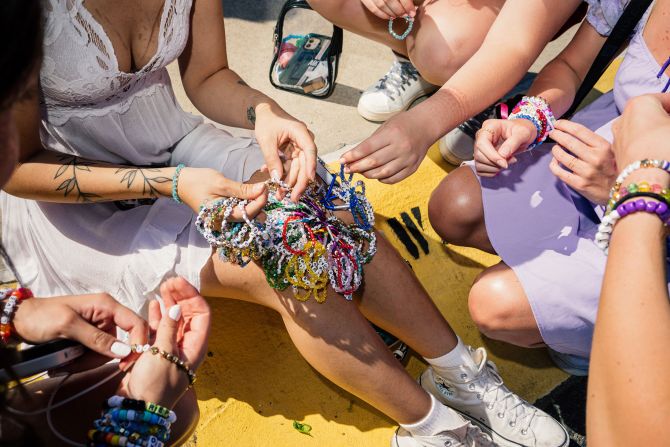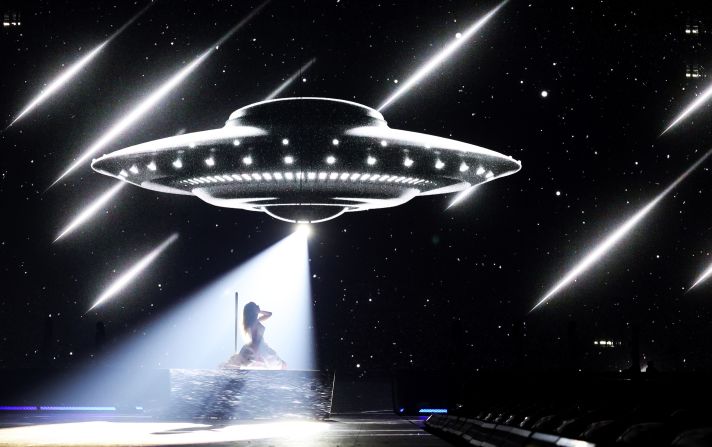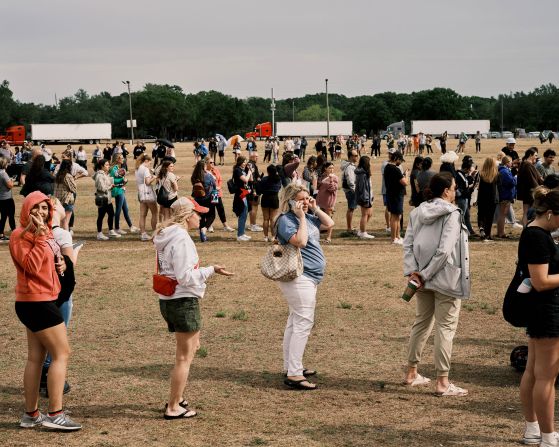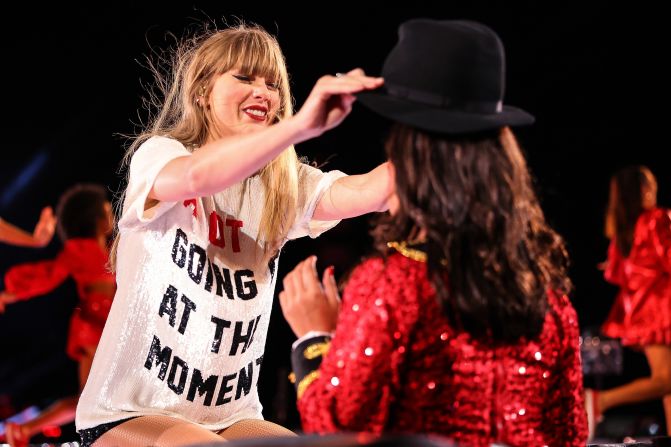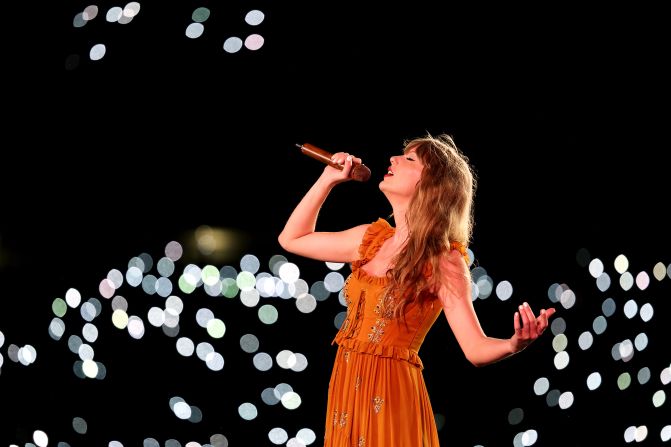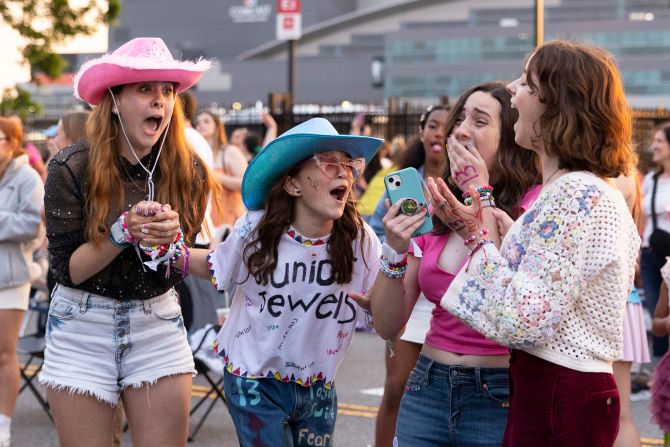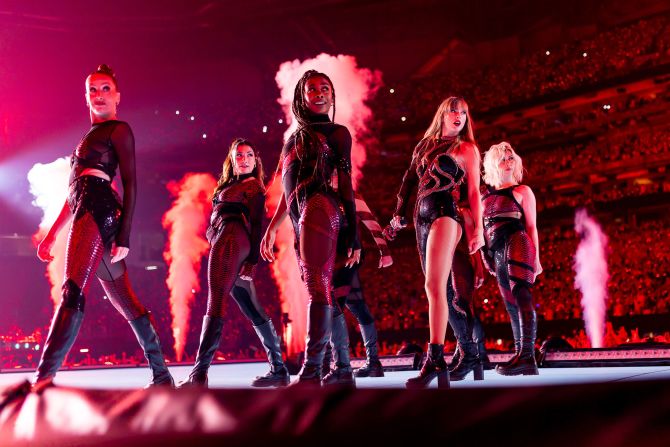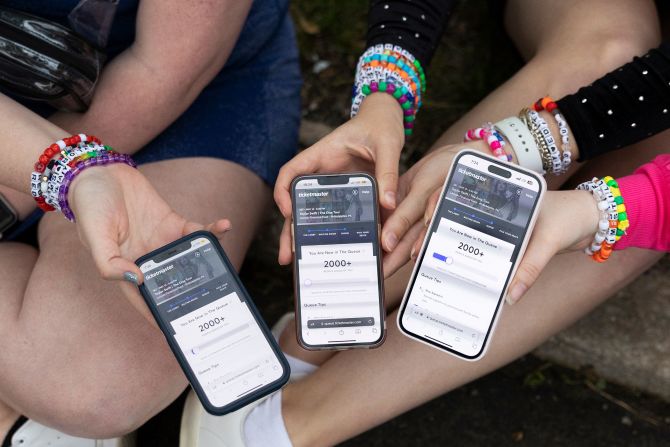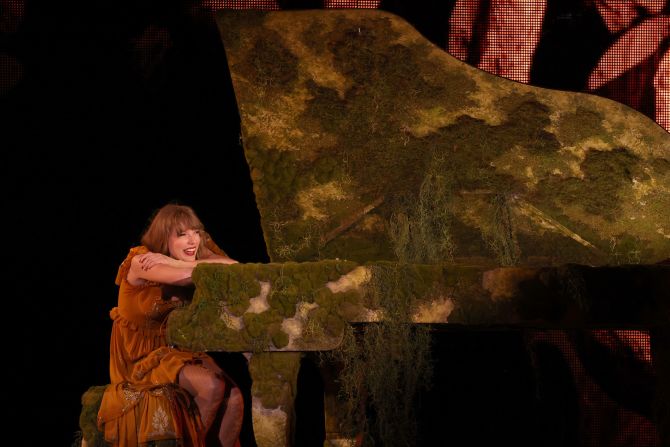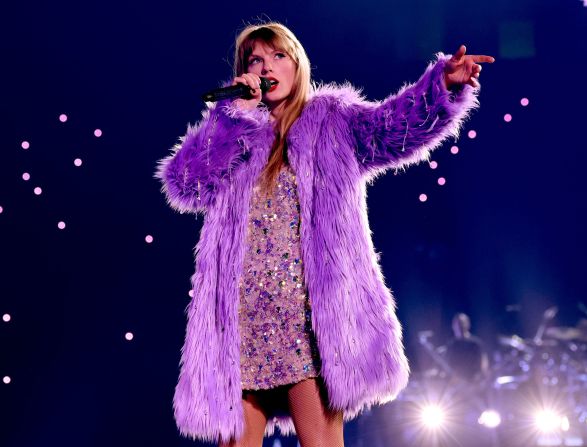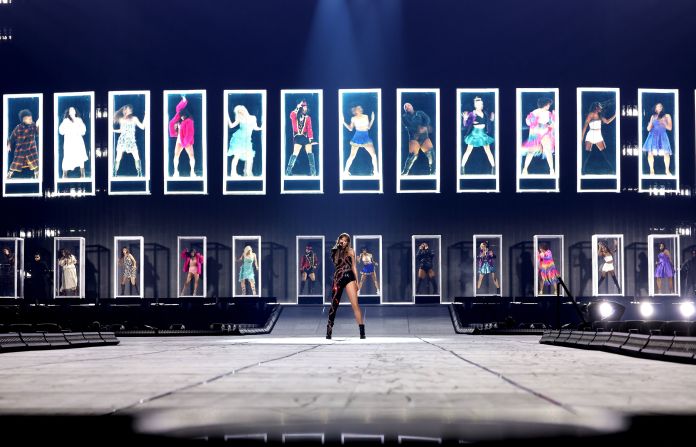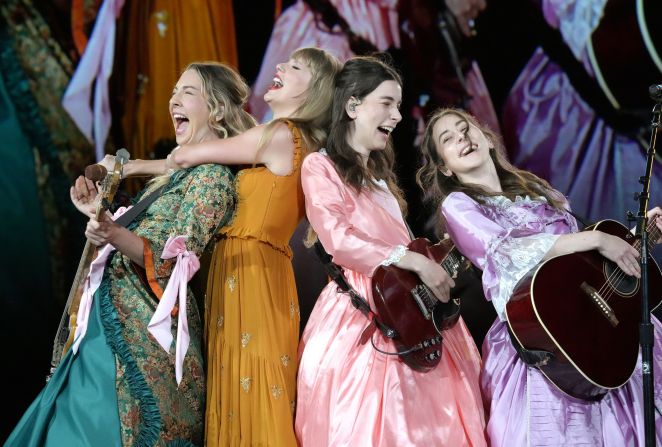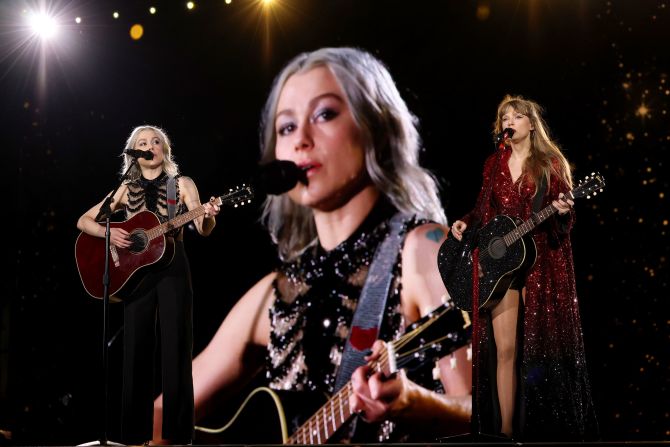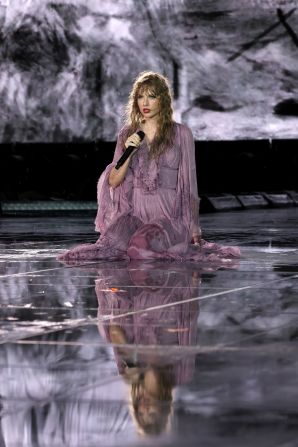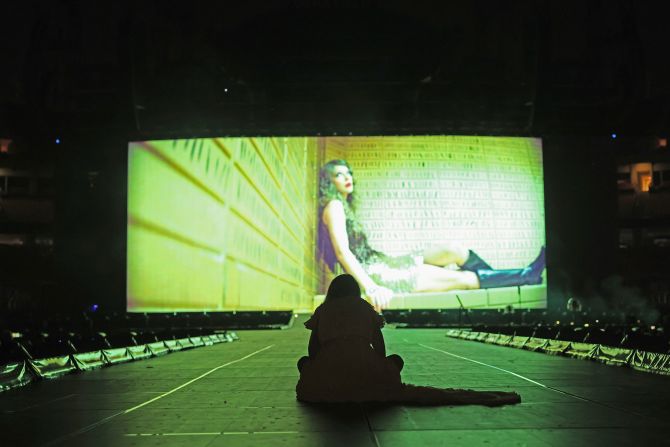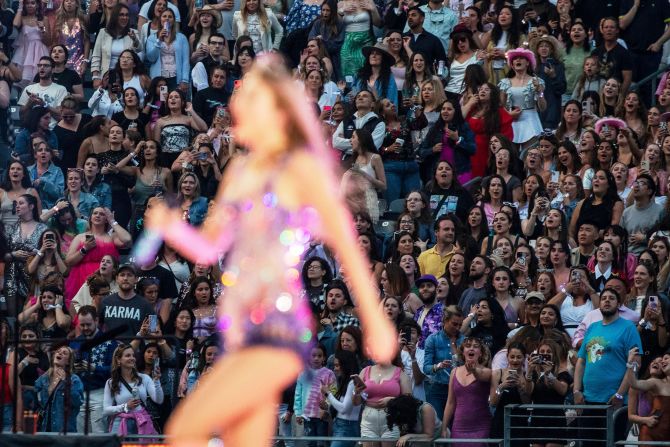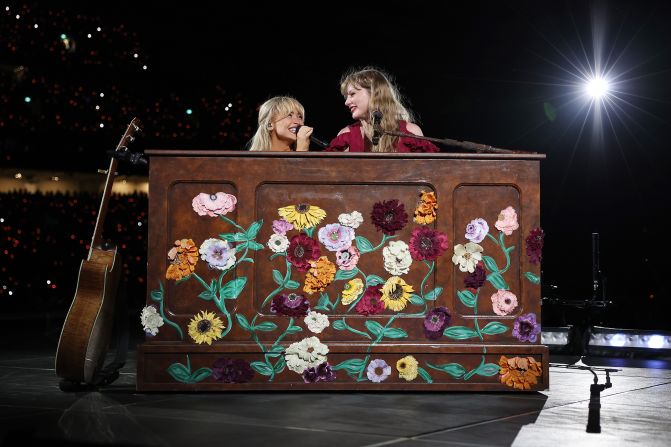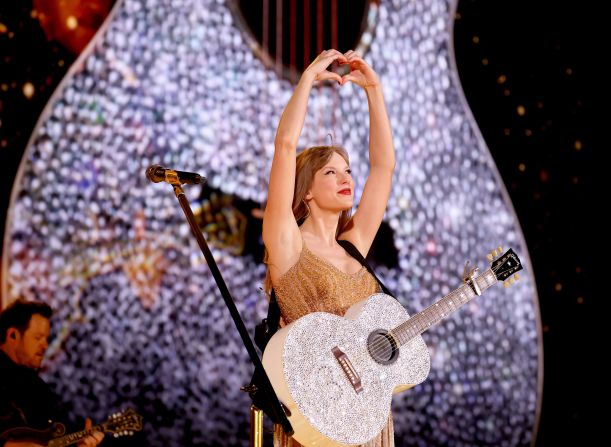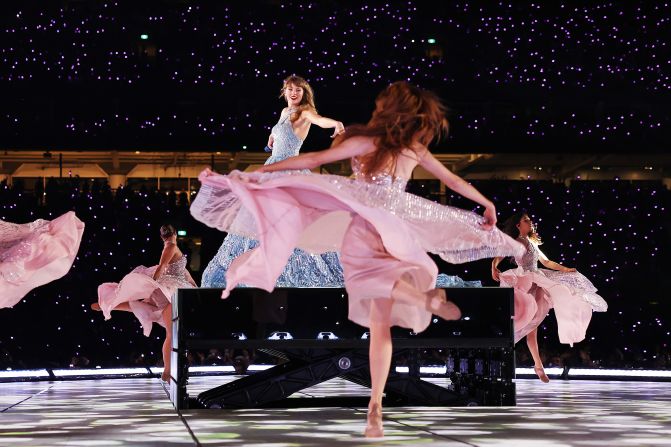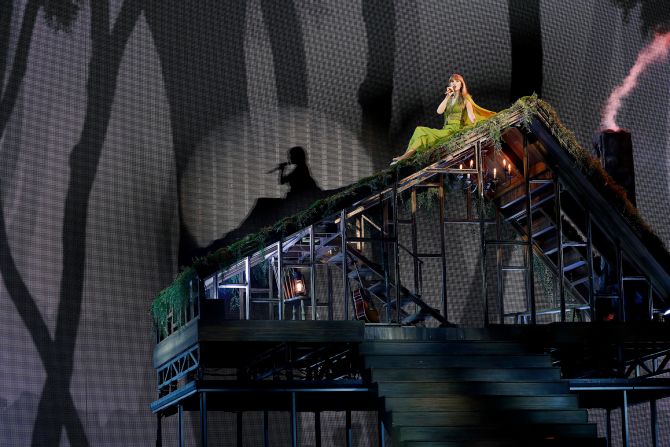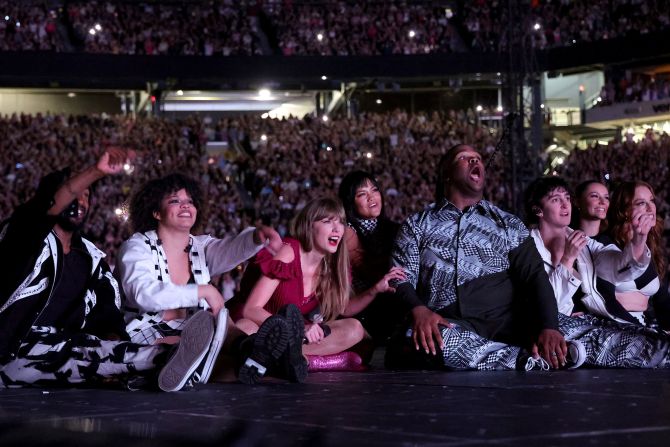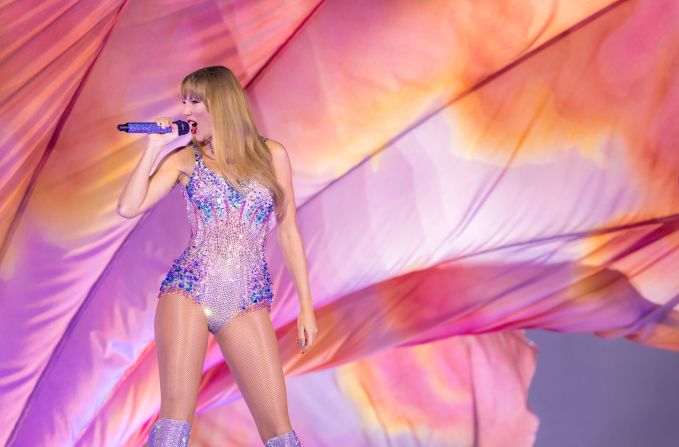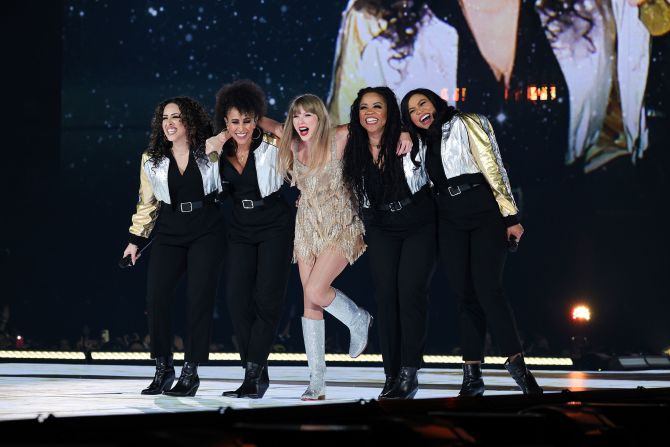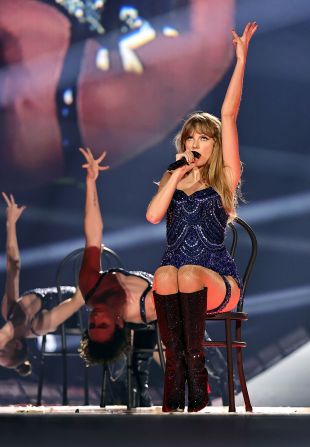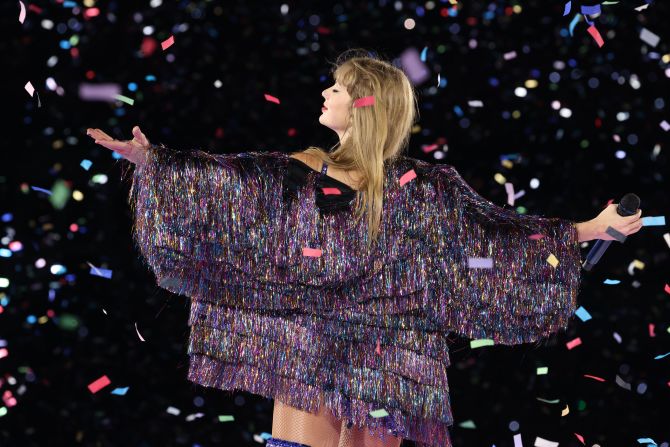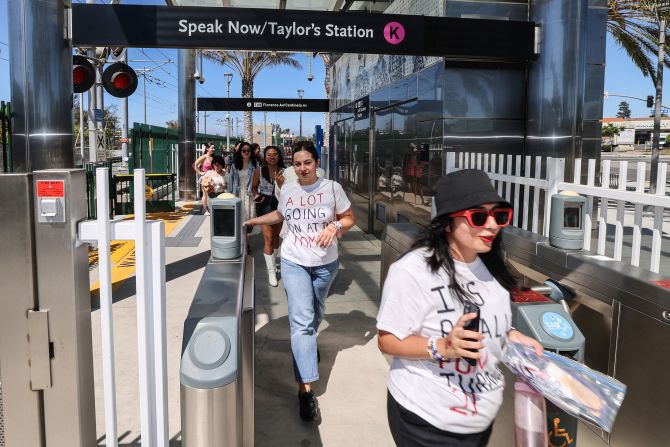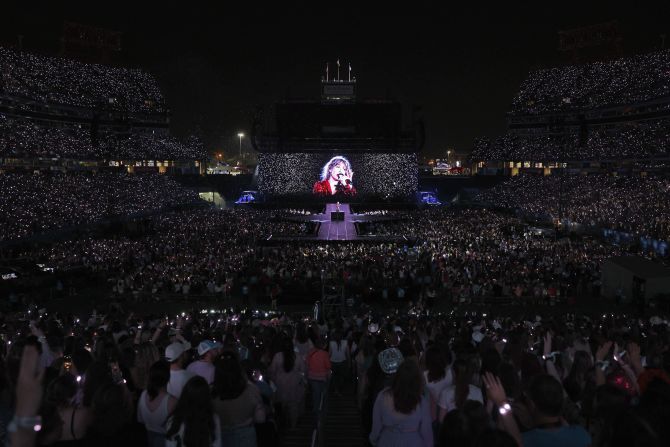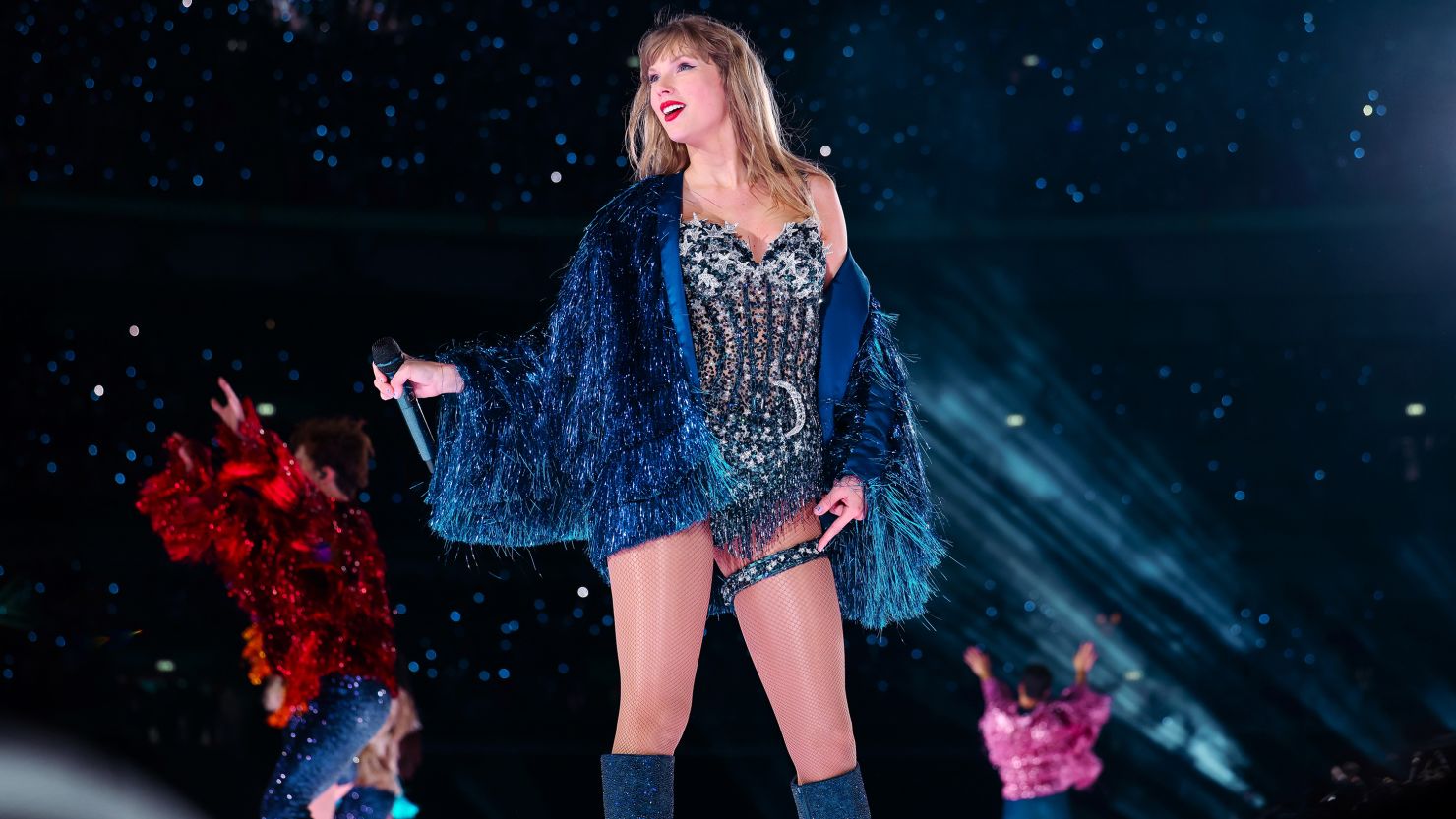
Taylor Swift was still a new-to-the-scene country artist when she performed at Cowboys, a small bar in the Colorado Springs area, in 2007. At the end of the show, she took two purple beaded bracelets off of her wrist and handed them to a woman who’d been at the front of the stage, singing her songs louder than anyone else.
Then-college student Carola Lovering, the recipient of Swift’s token of appreciation, kept one bracelet for herself and gave the other to her best friend, Joanie Goldfarb, who was standing next to her.
Lovering, who is now an established author and mom of two, and Goldfarb reunited at the Eras Tour this October. Though the bracelets once gifted to them by Swift were long lost, they exchanged new ones with other concertgoers, taking part in a now-tradition born during the superstar’s Eras Tour, the final three shows of which begin Friday in Vancouver.
Everyone from high-ranking politicians to Sir Paul McCartney himself showed up to see Swift perform a three-hour show that included a 44-song setlist of her greatest hits spanning her now 18-year career. Her concerts caused earthquakes, created a Beatlemania-level of fervor, impacted local economies and brought a collective joy to millions of people still reeling from the dark days of the pandemic. As the tour wraps up after a two-year run around the globe, this is not just the end of an important chapter in Swift’s career, it’s a momentous conclusion to a significant chapter in modern music history.
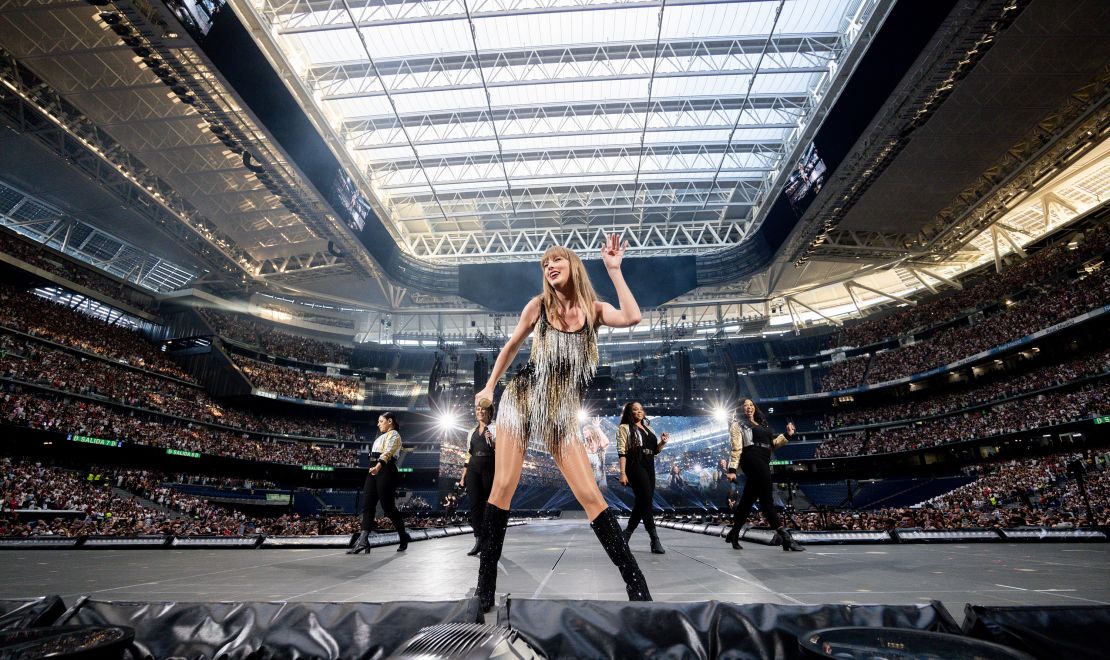
“I think at an emotional and cultural level, it’s on par with, let’s say Elvis, Michael Jackson, Sinatra, you could say Madonna, and also the Beatles. Just that deep attachment to these artists and the frenzy around it,” Jasen Emmons, chief curator and VP of curatorial affairs at Los Angeles’ Grammy Museum told CNN in a recent interview. “Whether she orchestrated it or not, she’s created this zeitgeist around that tour that feels unprecedented.”
Embracing togetherness
As were so many other industries, the music world was rocked after the global pandemic shut down restaurants, theaters, music venues or anywhere people would gather for a good time. Swift was set to kick off her previously announced Lover Fest tour when that was postponed and then ultimately cancelled.
One year later, she announced the Eras Tour, her first tour in six years. The Eras Tour began in March 2023, just as life was coming back into full view.
In pictures: Taylor Swift’s Eras Tour
“Coming out of the pandemic there was such a pent up demand to go out and see something, especially something that felt ‘this is going to be so special that I want to be a part of it’ because you realize ‘I’m part of a larger cultural event,’” said Emmons.
You could say the Eras Tour came at a time when people needed it most. The same has been said about the Beatles, who made their first visit to the US in February 1964, just months after the assassination of President John F. Kennedy.
In “Beatles ’64,” Paul McCartney acknowledged that the timing of the tragedy and Beatlemania in the US were linked.
“Maybe America needed something like The Beatles to be lifted out of sorrow,” he said.
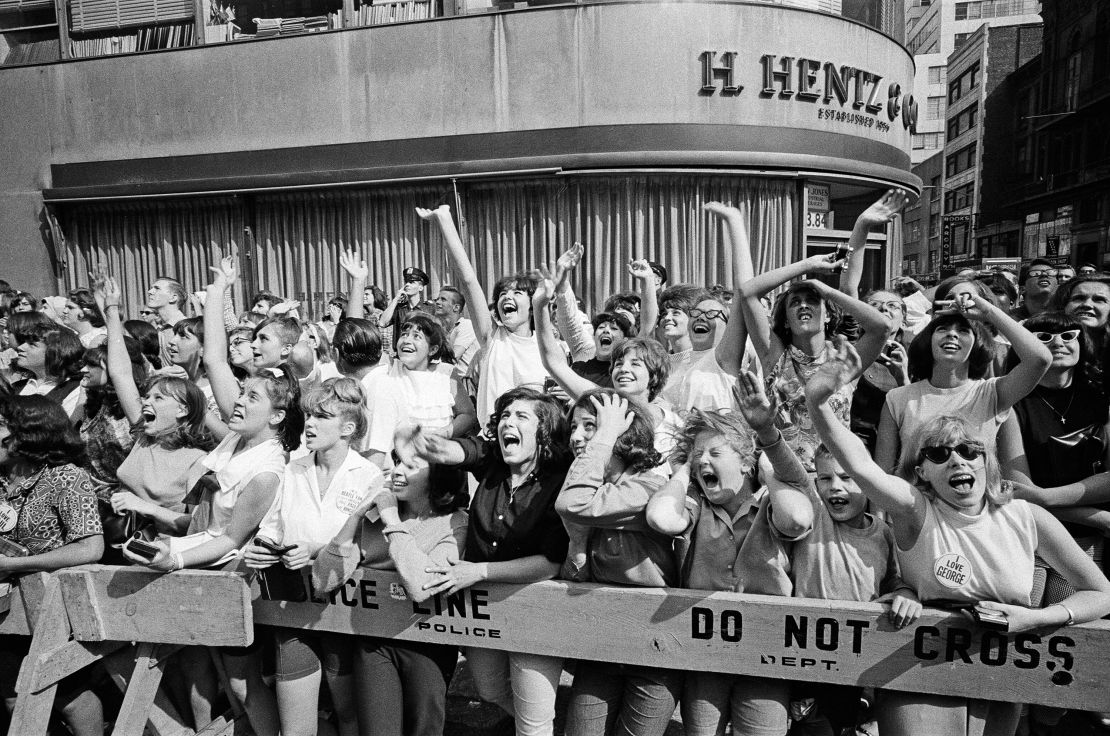
Swift similarly acknowledged this sentiment in her commemorative Eras Tour book when she wrote in the forward that she created the tour, in part, “because people need an escape from how brutal life can be.”
That desire to be part of the healing fervor of The Eras Tour became apparent early on when hundreds of ticketless Swifties would gather in parking lots or vacant fields near several concert venues on show night for what became known as “Taylor-gating,” where they would trade bracelets and sing along to the live show they could hear but not see.
“Despite the vastness of what she’s doing each night, say, playing to 80,000 people, she has this ability to make it feel intimate,” Emmons said. “So people, when they go, feel this direct connection to her.”

The cost of a memory
Swift’s team has not released official figures on how much money the Eras Tour grossed but it’s been estimated that the tour made over $2 billion, making it the highest-grossing tour in history. The current record-holder is Elton John, whose Farewell Yellow Brick Road tour grossed over $900 million.
It’s a feat considering when tickets first went on sale, the demand was so high that Ticketmaster crashed.
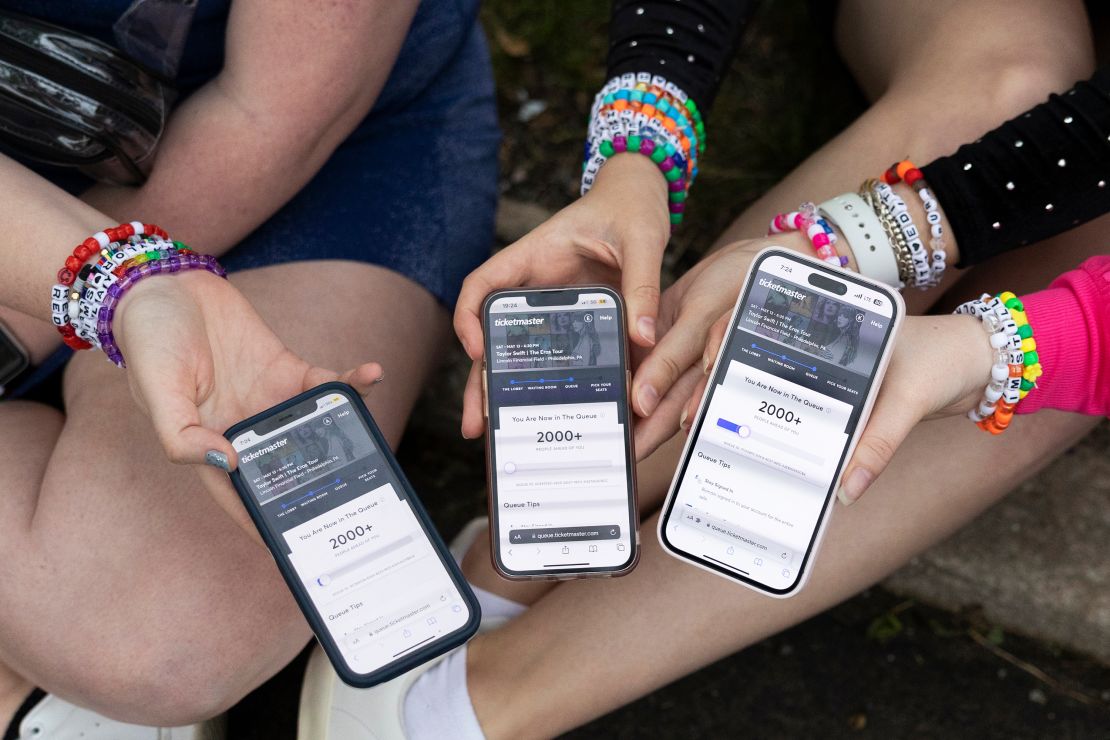
According to Tom Corbett, Global Head of Sponsorship at Barclays in the UK, the Eras Tour has highlighted the rise of consumers who are prioritizing spending their money on memorable experiences instead of spending on physical items.
“The Eras tours has been the poster child of the ‘experience economy’ that we talk about,” Corbett told CNN in a recent interview. “We’re seeing a shift in people’s behaviors and I think that’s going to continue.”
In May, Barclays estimated that the Eras Tour was set to boost spending in the United Kingdom by around $1.2 billion (£1 billion) in June, when her tour would hit cities across England, Wales and Scotland. Based on their data, Corbett said, those estimates lived up to their expectations.
“We’re pretty confident in that figure,” he said. “Certainly the Eras Tour, the brand of Taylor Swift, generated over a billion pounds of spending on goods and services from the tickets to beads to eating out to travel, which is kind of unbelievable when you say that number out loud.”
The UK isn’t the only economy that the Eras tour affected, with several cities across the US benefiting from local economic boost in what became known as the “Swift Effect.”
The price of tickets did however loom large. If you weren’t able to purchase a tickets at face value during the initial presale, chances are you bought tickets at an inflated cost on the resale market.
It’s what happened to Lovering, who decided to splurge on a resale ticket that cost just south of $2,000 for the Miami concert she saw in October.
Part of the draw has been the show performed throughout the first US leg in 2023 is different from the show she’s performing in 2024, thanks to a mid-tour setlist revamp made to include songs from her 11th studio album “The Tortured Poets Department,” released in April.
“We want to be able to tell our kids we went to the Eras Tour,” Lovering told CNN. “Because it’s just never going to happen again like this.”
